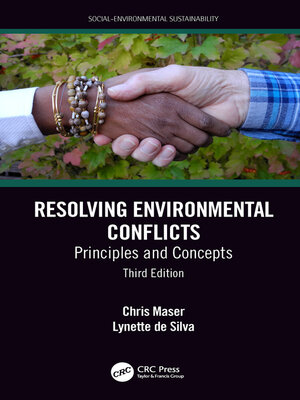Resolving Environmental Conflicts
ebook ∣ Principles and Concepts · Social Environmental Sustainability
By Chris Maser

Sign up to save your library
With an OverDrive account, you can save your favorite libraries for at-a-glance information about availability. Find out more about OverDrive accounts.
Find this title in Libby, the library reading app by OverDrive.



Search for a digital library with this title
Title found at these libraries:
| Library Name | Distance |
|---|---|
| Loading... |
Resolving a conflict is based on the art of helping people, with disparate points of view, find enough common ground to ease their fears, sheath their weapons, and listen to one another for their common good, which ultimately translates into social-environmental sustainability for all generations. Written in a clear, concise style, Resolving Environmental Conflicts: Principles and Concepts, Third Edition is a valuable, solution-oriented contribution that explains environmental conflict management.
This book provides an overview of environmental conflicts, collaborative skills, and universal principles to assist in re-thinking and acting toward the common good, integrates a variety of new real-world conflicts as a foundation for building trust, skills, consensus, and capacity, and explains pathways to collectively construct a relationship-centric future, fostering healthier interactions with one another and the planet.
The new edition illustrates how to successfully mediate actual environmental disputes and how to teach conflict resolution at any level for a wide variety of social-environmental situations. It adds a new chapter on water conflicts and resolutions, providing avenues to healthy, sustainable, and effective outcomes and provides new examples of conflicts caused by climate change with discussion questions for clear understanding.
Land-use planners, urban planners, field biologists, and leaders and participants in collaborative environmental projects and initiatives will find this book to be an invaluable resource. University students in related courses will also benefit, as will anyone interested in achieving greater social-environmental sustainability and a more responsible use of our common natural resources for themselves and their children.







